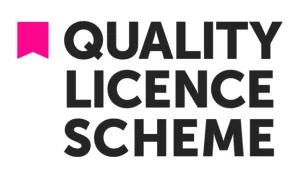Welcome to Open Learning College – Change your career, Increase your salary, and Improve your life.
 Course Overview
Course Overview 
Embark on a transformative learning journey with the UK’s most innovative home study provider, offering courses designed to unlock your true potential and facilitate the career change you desire. Access our distance learning courses directly from anywhere, anytime, and acquire industry-recognised Professional Qualifications essential for advancing in your career.
Specifically, explore the flexible and convenient Relationship and Couples Counselling (Level 3) course, an ideal way to gain a diploma qualification. Whether you aim for further education, improved job prospects, or expanded knowledge, this comprehensive course allows you to prepare thoroughly for exams or careers through home study. Plus, it’s structured to be accessible and beneficial even if you have no prior knowledge in Relationship and Couples Counselling.
Relationship or couples counselling has gained much popularity over recent years, possibly due to the complexities and expectations of modern life. This course explores the basic phases or stages of relationship counselling, and examines separation, divorce, violent relationships and problems based on sexual difficulties.
In addition to the study of various counselling approaches, a range of working models and theories specific to this field will be explained as well as the concepts of meta-communication, genograms and reflective practice.
Specific attention will be given to psychodynamic, cognitive behavioural and person-centred approaches, which will give students a fuller working knowledge and understanding of advanced counselling skills. In specialist counselling fields, these skills are necessary in order to be able to recognise and deal with the complex range of client needs, together with being able to understand the origins of these particular emotions and possible physiological factors.
This Level 3 Diploma course is designed to follow on from, and complement a basic counselling skills course. Reappraisal of basic counselling skills and core knowledge will be covered too.
 Course Key Topics
Course Key Topics
the Relationship and Couples Counselling (Level 3) course is divided into 10 modules.
Module 1: Introduction to Course Topic and Reappraisal of Counselling Skills
This module introduces the concept of relationship counselling, and reflects on previous knowledge, looking in detail at five theories which have been adopted as approaches in counselling. In this module the work of Freud, Rogers, Skinner, Ellis, Jung and Egan will be highlighted, and the corresponding counselling approaches examined.
Module 2: The Psychodynamic Approach
This module examines the psychodynamic approach and its usefulness in relationship and couples counselling. This approach may have special significance in the context of various attachments and potential issues that may arise. The process of change from Freud’s original theories to the more social and relationship based approaches of the psychodynamic therapies is identified and explained.
Module 3: The Cognitive Behavioural Approach
In this module, students gain understanding of the key concepts of the cognitive behavioural approach to counselling in the context of intimate relationships. Students also learn about conditioning and social cognitive theories. The module describes cognitive techniques and their applications and relevance to relationship and couples counselling. Students gain confidence in the ability to integrate such components with other counselling approaches.
Module 4: The Person-Centred Approach
In the study of this module, students learn key elements of the person-centred approach to counselling. The hierarchy of needs is explained in relation to counselling. Person-centred techniques and their relevance and application to relationship and couples counselling are explored in detail.
Module 5: Boundaries, Ethics and Defining the Relationship
This module focuses on key aims of counselling, and includes confidentiality and ethical conduct within the counselling role. Students have the opportunity of considering the integration of different counselling approaches suitable for client need. Boundaries or limitations of counselling are identified and defined. It also looks at what types of consent and responsibilities the counsellor has to seek. In addition, some historical background of the development of counselling in this context is described, together with the emergence of the therapeutic concepts in use today.
Module 6: Exploring the Problems
This module examines the assessment of a clients’ needs, and how to consider building a collaborative relationship within the therapeutic environment. During this phase of counselling, the exploration and understanding of problems begin and the future effort, planning and facilitation necessary for successful resolution is established.
Module 7: Working Through the Problems
Within this module communication habits are discussed, together with references and examples of various working models such as attachment, triangular relationships, splitting and projection.
Module 8: Facilitating Change
This module addresses resolution of difficulties. This is the phase where change is facilitated via counselling strategies and techniques, together with the implementation of agreed programmes for homework, communicative exercises and maintenance.
Module 9: Specific Relationship Problems. Part 1
Separation, divorce and problems of a sexual nature are discussed in this module. In addition, relevant counselling techniques, strategies and observations will be identified and described.
Module 10: Specific Relationship Problems. Part 2
Career and workplace problems, violent relationships, and other related issues are discussed in this module. In addition, relevant counselling techniques, strategies and observations will be identified and explained.
(Please click on the curriculum tab above to see a detailed view of each module)
Course Content
Relationship and Couples Counselling (Level 3) – FREE Starter Pack
How to…. (a series of explainer videos)
Module 1 – Introduction to Course Topic and Reappraisal of Counselling Skills
Module 2 – The Psychodynamic Approach
Module 3 – The Cognitive Behavioural Approach
Module 4 – The Person-Centred Approach
Module 5 – Boundaries, Ethics and Defining the Relationship
Module 6 – Exploring the Problems
Module 7 – Working Through the Problems
Module 8 – Facilitating Change
Module 9 – Specific Relationship Problems. Part 1
Module 10 – Specific Relationship Problems. Part 2
Course Resources
Final Exam
College Announcements
🔍 Unlock the Secrets of Relationship and Couples Counselling with £50 OFF the Course! 💑🕵️♂️
Ready to delve into the intricacies of relationship dynamics?
For a limited time, we're excited to offer an exclusive £50 discount on our Relationship and Couples Counselling (Level 3) course!
Use code COUPLE50 at checkout before the month ends!
🌟 Why Choose Our Relationship and Couples Counselling (Level 3) Course
Presented by Open Learning College, this course is your key to mastering advanced counselling skills in relationship dynamics. Explore ten in-depth modules covering theories, psychodynamic approaches, cognitive behavioural techniques, and person-centred methods. Gain practical insights for addressing separation, sexual difficulties, and other relationship challenges.
💡 What Makes Our Course Shine
Flexibility: Tailor your learning to your schedule, with 24/7 access to course materials.
Expert Support: Benefit from guidance by experienced tutors throughout your educational journey.
Real-World Application: Acquire practical skills and knowledge crucial for successful relationship counselling.
Don't miss this chance to unlock the secrets of relationship and couples counselling at a discounted rate! Enrol now, use code COUPLE50* at checkout, and embark on your journey towards becoming a skilled relationship counsellor. 💖📚
*This discount code cannot be used in conjunction with any other offer.









 Get Social!
Get Social!







Jordan Patel.